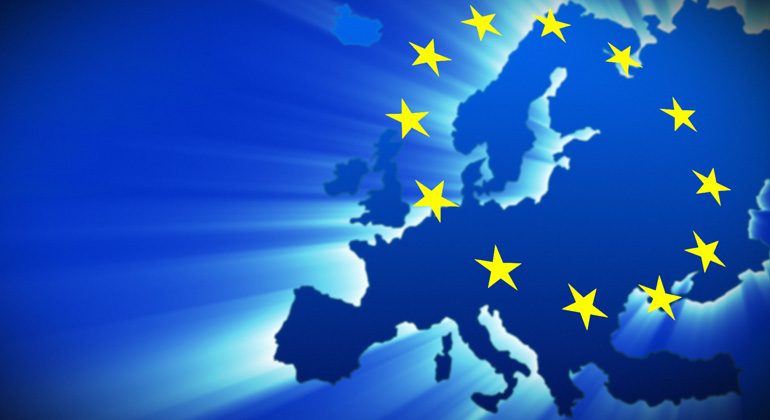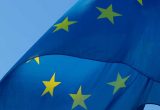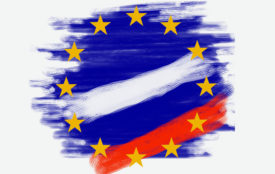Europe can become the first climate-neutral continent
European electricity sector has the potential to achieve power sovereignty and electricity generation free of fossil resources by 2030.
Realising this self-sufficiency at a European level based on renewable energies would cost EUR 140 billion p.a. until 2030 and EUR 100 billion p.a. until 2040. The necessary technologies are available, but Europe needs an enabling legislative framework as growth rates of renewable energy have been too low to meet targets. Aquila Group commissioned the study that was coordinated by Potsdam Institute for Climate Impact Research and conducted jointly with six more reputable institutes
A new study “European Power Sovereignty through Renewables by 2030” shows that Europe could achieve power sovereignty and electricity generation free of fossil fuel resources by 2030 with the renewable energy technologies the continent already has at hand. The report states that the entire energy system will not be free of fossil fuels until 2040.
The study was coordinated by the Potsdam Institute for Climate Impact Research (PIK). Their researchers were joined by academics from six other reputable institutes: Bauhaus Earth (BE), Fraunhofer Institute for Solar Energy Systems (FhG-ISE), German Institute for Economic Research (DIW), International Institute for Applied Systems Analysis (IIASA), Research Center for Atmospheric Physics and Climatology (Academy of Athens) and Technical University of Berlin (TUB).
The study was commissioned by Aquila Group, an investment and asset development company focused on generating and managing essential assets headquartered in Hamburg, Germany. The company worries that the opportunity to create an integrated European clean energy system based entirely on renewable resources could be missed if no immediate actions are taken. Such a system would reduce energy costs for consumers, reduce vulnerability in times of geopolitical tension and increase Europe’s competitiveness at a global level. The authors urge politicians across the continent to develop a ‘common will’ and achieve power sovereignty by using existing technologies and spearheading a massive but affordable expansion of renewable energy – particularly wind and solar.
The report states that by harnessing Europe’s complementary energy resources together with a consolidated electricity grid, the energy system could free itself from gas and oil imports and dependence on volatile nations. The authors quantify the cost of achieving this goal: investments in climate-friendly energy solutions of EUR 140 billion per year by 2030 and EUR 100 billion per year by 2040 would be necessary. To put this into context, Europe has spent EUR 792 billion to protect consumers from the effects of Russia’s invasion of Ukraine in 2022, which led to fears over energy security and a spike in prices.
Opening up clean energy assets to a wider range of investors
Aquila Group believes that the world’s infrastructure will need to be rebuilt, reconstructed or renovated over the next few decades with the help of private market participants. The Group is therefore involved in the financing, development and construction of clean energy and sustainable infrastructure. Aquila Group currently has around EUR 15 billion of assets under management in these areas and drives the energy transition through its diversified clean energy portfolio, which totals approximately 10.5 GW in Europe. This portfolio focuses on wind, solar and battery storage with projects under development, construction and operation spread across various countries.
The previous growth of renewable energy has been notable but remains far too low to achieve energy sovereignty or Net Zero in the next decade. Major barriers which need to be overcome include insufficient energy storage rates, a lack of necessary network infrastructure and insufficient use of renewable energy sources. It is important to understand that Europe’s various regions can offer diverse resources, but that these must be adequately interconnected. In addition, an overall energy turnaround will only succeed if the problem of heat demand is also considered. Aquila Group invests not only in clean energy, but also in battery energy storage systems (BESS) to balance the intermittent nature of solar and wind power generation. In total, the company’s BESS portfolio has a capacity of around 1.5 GW.
Prof Dr mult. Hans Joachim Schellnhuber, Director Emeritus at PIK and Member of Aquila Group’s Advisory Board, comments: “Power sovereignty is just the first step. For full carbon neutrality, heat demand and the necessary electrification of industry must be taken into account. Besides the exploitation of wind and solar power, geothermal resources can further close gaps in these fields.”
Prof Dr Jürgen Kropp, coordinator of the study, adds: “Establishing local energy infrastructures would boost European markets and strengthen local economies. But this would require pragmatic and efficient implementation rules.”
Roman Rosslenbroich, Co-founder and CEO of Aquila Group, says: “The study reveals that Europe has the resources to achieve power sovereignty through a consolidated grid that leverages complementary European resources. This unified system would not only enhance Europe’s global competitiveness with one of the world’s lowest energy cost bases, but also strengthen the EU, both socially and politically. With investments in clean energy solutions, Europe can produce energy at competitive rates, offering significant savings compared to traditional energy infrastructures, while at the same time tackling climate change. The findings of this study, based on rigorous research, demonstrate the transformative potential of renewables for Europe’s future.”
Read the executive summary here








